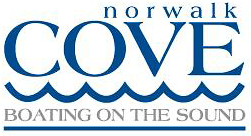CT Islands Closed to Public
June 14, 2012From Boating Local.com
The Connecticut Department of Energy and Environmental Protection (DEEP) announced that Charles Island in Milford and Duck Island in Westbrook will be closed to the public through September 9, 2012, to prevent disturbances to nesting birds.
Both islands have been designated by DEEP as Natural Area Preserves, primarily because of their importance as nesting habitats for several state-listed birds, including snowy egrets and great egrets (state threatened species), glossy ibis, and little blue herons (state special concern). The two islands have also been designated as Important Bird Areas by Audubon Connecticut. In addition, the DEEP is asking beachcombers, sunbathers, and boaters along the Connecticut shoreline to respect the fencing and yellow signs warning of piping plover and least tern nesting sites. The piping plover, a small, sandy-colored shorebird about the size of a sparrow, is a threatened species under the federal Endangered Species Act, as well as a state threatened species in Connecticut. The small, gull-like least tern, which nests in colonies in the same beach habitat as the piping plover, also is a state threatened species.The DEEP Wildlife Division also provides the following advice to protect nesting shorebirds:
- Refrain from walking dogs or allowing cats to roam freely on beaches during the nesting season. Dogs are not allowed at some beach areas during the bird nesting season. These areas include, but are not limited to, Long Beach in Stratford, Sherwood Island State Park in Westport, and Hammonasset Beach State Park in Madison. Respect all areas that are posted “no dogs” during the nesting season. Dogs and cats are frequent predators of piping plovers and least terns, and a major cause of disturbance. Dogs, whether leashed or allowed to roam freely, can step on nests and young, and may also chase shorebirds.
- Always keep dogs on a leash.
- If you live near a beach, do not let your pets roam during the nesting season.
- Do not bury or leave trash, picnic leftovers, and fish scraps on a beach. They attract predators of shorebird chicks and eggs, such as skunks, raccoons, foxes, and black-backed gulls.
- Do not attempt to “rescue” young birds that appear to be lost or too young.
- Do not attempt to remove young birds from the beach to care for them at home. In most cases, when immature birds are found alone, the adults have been frightened away but remain nearby and will return to their young once the intruder leaves.
Categories: None

